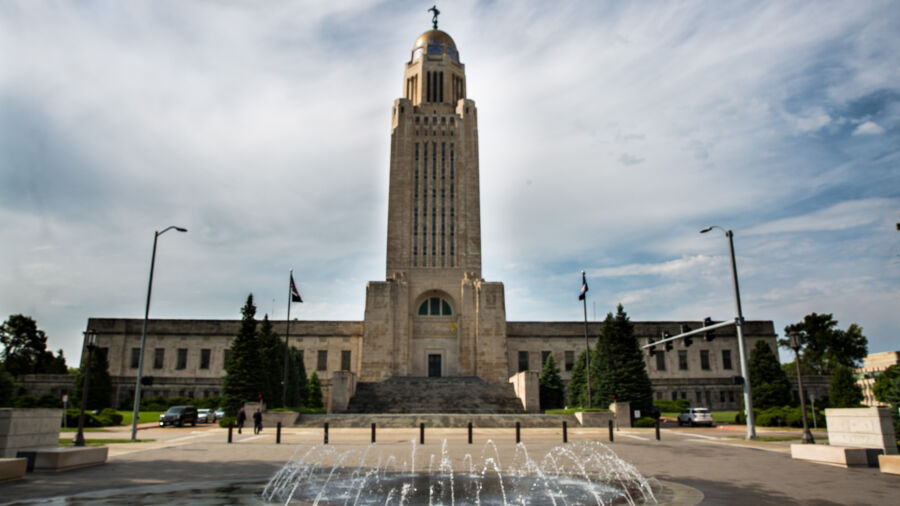Nebraska lawmakers passed a bill on Friday that prohibits both abortions beyond the 12-week mark of pregnancy while also imposing limitations on “gender-altering procedures” for minors.
The legislation, which is believed to be the first of its kind to combine restrictions on both abortion and “gender-affirming care,” was approved with a vote of 33–15 and now awaits the signature of Gov. Jim Pillen, a Republican.
Following the bill’s passage, Pillen expressed his support for the measure, specifically emphasizing the need for caution regarding “gender-affirming care.”
“All children deserve a chance to grow and live happy, fruitful lives. This includes pre-born boys and girls, and it includes children struggling with gender identity,” he said. “These kids deserve the opportunity to grow and explore who they are and want to be, and they can do so without making irreversible decisions that should be made when they are fully grown.”
Nebraska’s unicameral legislature has a Republican majority. Lawmakers unsuccessfully proposed a six-week abortion ban last month, which failed by one vote. This was replaced in the final days of the state’s legislative session when lawmakers amended the bill banning “gender-affirming care” to include the 12-month abortion ban.
Deliberations were temporarily halted as six protesters were arrested at the state capitol building on Friday. At around 2:40 p.m., raucous protesters yelling in a chamber balcony threw items resembling blood-stained tampons onto the legislative floor. As a result, the balconies were vacated for the remainder of the debate.
One woman was arrested for allegedly punching a trooper in the chest when he stopped her from pushing past him. The assaulted trooper was trying to detain another man who was allegedly trying to prevent a sergeant-at-arms from opening a door at the back of the legislative chamber.
Left-wing demonstrations at and inside state legislatures have become increasingly common recently, with some even spilling onto the chamber floors.
Currently, abortion is legal in Nebraska until the 22-week mark of pregnancy.
The bill, known as LB 574, or the “Let Them Grow Act,” prohibits physicians from performing abortions after the 12-week mark of pregnancy, except in cases of medical emergencies, sexual assault, or incest.
The legislation additionally bars “gender-altering procedures,” which it broadly defines as “any medical or surgical service” and “prescribed drugs related to gender alteration,” for transgender individuals under the age of 19, Nebraska’s age of majority.
Furthermore, the bill grants the state’s chief medical officer, appointed by the governor, the authority to establish regulations permitting “nonsurgical gender-altering procedures” for minors, such as puberty blockers and hormone therapy.
If signed into law, the 12-week abortion ban would take immediate effect, while the restrictions on “gender-affirming care” would come into force in October.
States Move to Restrict Abortion and ‘Gender-Affirming Care’
Nebraska joins a growing list of roughly 17 states aiming to protect minors from what Republicans and supporters of such bans argue are irreversible medical procedures.
Opponents of bans argue that such legislation restricts access to “gender-affirming” health care for transgender individuals. Major medical organizations such as the American Medical Association and the American Academy of Pediatrics consider these treatments and procedures to be medically necessary and potentially lifesaving for transgender youth.
However, a growing list of individuals who’ve undergone the procedures have told lawmakers in various states that they and their parents were lied to by their health care providers and now regret their treatments. Some have said their doctors effectively scared their parents into consenting to such medical interventions by saying the likely alternative would be suicide.
More than 100 bills seeking to ban medical and surgical treatments for what Nebraska’s bill calls “gender-altering procedures” have been introduced nationwide. Some of the approximately 17 states to have successfully enacted laws of this nature are currently facing legal challenges.
The passage of the 12-week abortion ban in Nebraska coincides with North Carolina legislators overriding a gubernatorial veto to implement a similar ban in their state.
North Carolina’s Republican-controlled General Assembly overrode the veto of Democrat Gov. Roy Cooper on May 16 to enact legislation that prohibits the majority of abortions after the 12-week mark. That vote drew the ire of the White House, which called it “a dangerous bill that is out of touch” with most of the state’s residents.
Meanwhile, South Carolina passed a near-total abortion ban after the six-week mark on May 18, after days of tense debate. A similar bill passed in 2021 was struck down by the state’s Supreme Court for not allowing enough time for a woman to know if she was pregnant.
Following the U.S. Supreme Court’s overturning of Roe v. Wade in June of last year, lawmakers from both Republican and Democrat parties have taken action to modify abortion laws, either by imposing restrictions or loosening regulations.
Republican-led legislatures, like Florida’s, have implemented nearly complete bans on abortion as early as six weeks into pregnancy. On the other hand, Democrat-led legislatures, such as California’s, have allowed abortions to take place up until birth without mandating care for babies who survive failed procedures.
This report has been updated with additional information.
From The Epoch Times


